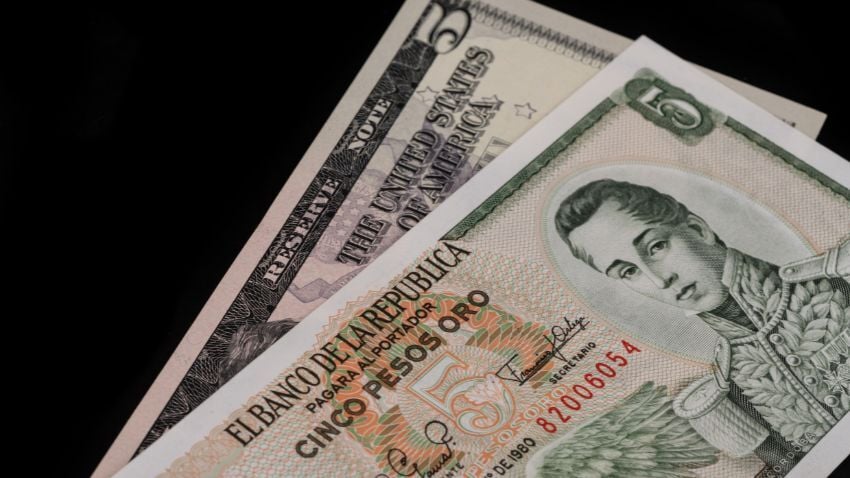The 6 Safest Countries In Asia
Asia is one of the most fascinating regions in the world for travel, offering an extraordinary mix of cultures, histories, and landscapes. From...

6 min read
Did you know that professional soccer star David Beckham utilized a little-known law to reduce his tax burden while living in Spain significantly?
This special tax regime, often referred to as the "Beckham Law," allowed him to save millions in taxes. Rest assured, the Spanish taxman (Hacienda) got lots of money from him, but not as much as they wanted. You will see why below.
But this article isn’t about soccer; it’s about a special tax regime that grants qualified expats in Spain slightly better tax treatment than that of regular taxpayers.
Europe is, in most cases, a high-tax continent. In particular, Spain breaks tax revenue records year after year, and the country has wealth, inheritance and gift taxes, squeezing taxpayers as much as it can.
However, the Beckham Law aims to attract high-net-worth individuals looking to live in Spain. In this article, we will explain who can benefit from this program, its pros and cons, and, most importantly, why there are better options in other countries.

David Beckham saved millions of euros in taxes until the Spanish government realized it was losing significant revenue. As a result, professional athletes are no longer eligible for the same tax benefits today
The Spanish Beckham Law, formally known as the “Special Tax Regime Applicable to Workers Displaced to Spanish Territory,” is named after the famous soccer player David Beckham. Interestingly, he is considered the first celebrity to benefit from this tax regime, although professional athletes are not allowed to participate anymore. You guessed it, this law helped Beckham save millions of euros in taxes.
Even though this law was named after him, the Spanish government realized that it was missing out on lots of tax revenue, so it decided to make professional athletes non-eligible anymore—as if paying a smaller tax rate on income worth millions of euros wasn't enough. This goes to show that politicians saw a high-profile individual like him use the tax code, didn’t like that, and opted for amending the law.
The main goal of this tax regime is to turn Spain into a destination for top talent and high-income earners from around the world. Much like in other countries like Portugal or Greece, this special residency permit comes with better tax advantages than regular taxpayers. To illustrate this more clearly, instead of progressive tax rates, expats can benefit from a flat tax rate of 24% on earned income up to €600,000 ($644,260 USD)—normally, a taxpayer earning over €300,000 ($322,130 USD) would pay over 47%.
To benefit from the Beckham Law, you cannot have been a Spanish tax resident for the last five years before moving there. Also, your move to Spain should happen either the year you start using the new tax residency or the previous year. It should be noted that you can apply for this program regardless of your nationality.
Except for professional athletes, executives or freelancers, you move because of a job, either for a Spanish employer or working remotely for a foreign employer using information technologies;
You become an administrator of a company, but if that company mainly holds assets (patrimonial entity), you cannot own enough of it (more than 24%) to have control over it;
You start a business that qualifies as entrepreneurial under Spanish law;
You work as a highly skilled professional for a startup or engage in training, research, development, or innovation, and your income from this job represents at least 40% of your total income.
Your spouse and kids under 25 years of age can benefit from this tax regime, too.
As stated, while regular Spanish tax residents pay progressive income taxes that can reach 47%, if not more, qualified expats benefit from a much lower tax rate of 24% on their worldwide earned income up to €600,000 ($644,260 USD). However, the tax rate is a whopping 47% for any earned income above this threshold. For example, if you work a job or conduct any trade, you will be subjected to these rates, regardless of the source of your earnings.
The most notable perk of the Beckham Law is the tax exemption on foreign-sourced passive income. While taxes apply on earned income regardless of source (salaries and freelancing earnings), passive income such as dividends, interest, rentals, royalties and the like are tax-free in Spain. Note that Spanish-sourced passive income would be subject to regular tax rates. For example, if you had an investment property in Spain, taxes would apply on the income it generates.
Regular Spanish tax residents are required to report ownership of assets located outside Spain, forcing them to allocate time and resources to avoid penalties. However, Beckham Law beneficiaries do not have to report foreign-held assets or pay taxes on them. This tax relief would help expats enjoy significant savings and reduce compliance costs.

When considering Spain as a Plan-B, keep in mind that the ECB controls its monetary policy, and the government heavily taxes the wealthy to fund social programs, which can drive away productive individuals
The Spanish Beckham Law might seem attractive, but you must consider its drawbacks carefully. Here's why you should think twice before using it as your plan-B and why Spain might not be the best choice for your long-term goals:
Temporary Benefits: The Beckham Law's perks are only available for six years (the year you move, plus five more). This short-term benefit can leave you in a difficult position if you plan to stay in Spain longer. It's not a sustainable long-term solution.
High Taxes on Higher Income: Although you benefit from a flat 24% tax rate on income up to €600,000 ($644,260 USD), any earnings above that are taxed at a staggering 47%. This high rate can significantly reduce your income if you're a high-earner. You'll end up paying more than you bargained for.
Limited Eligibility: The Beckham Law excludes professional athletes, foreign freelancers, and top executives. If you fall into these categories, you won't qualify for the regime and will miss out on any potential benefits.
Double Taxation Issues: The limited relief from double taxation treaties means you could end up paying taxes in both Spain and your home country. This double burden can make your financial situation more complex and costly.
No Standard Deductions: Unlike regular Spanish residents, you can't take advantage of standard tax deductions like those for dependents or severance pay. This restriction can lead to a higher effective tax rate, so you won't save as much as you might think.
Exit Tax Concerns: If you plan to leave Spain after the Beckham Law benefits expire, you might face an exit tax. This tax can significantly impact your finances, making it a costly move. You're not just leaving Spain; you could be leaving behind a chunk of your wealth.
Other downsides:
The Spanish government efficiently collects taxes, but other governmental processes are slow and complicated, leaving you entangled in bureaucratic red tape.
Despite claims that taxes fund public services, Spain targets the wealthy to fund social programs, leading to a brain drain.
Workers are heavily taxed, often giving up more than half of their income, with inadequate public services in return, such as long waits for healthcare and toll fees on supposedly tax-funded highways.
A wealth tax of up to 3.5% even affects modest net worth, making Spain an unattractive place to hold wealth.
Under Agenda 2030, Spain faces increased control over citizens' lives, including food production, with strict regulations hurting farmers.
The recent destruction of water dams has raised concerns about future food shortages, potentially affecting Spain’s renowned cuisine.
As an EU member, Spain lacks full sovereignty; the ECB controls monetary policy and is considering introducing CBDCs, which could further restrict personal freedoms.
The Beckham Law offers some short-term tax relief, but it's not a viable long-term plan. The benefits are limited, the taxes can be high, and the eligibility is restricted. You should seriously reconsider moving to Spain. Don't settle for short-term relief; look for a country that aligns with your long-term financial goals and lifestyle needs.

Countries like Paraguay and Panama offer more favourable tax regimes with territorial systems, where you only pay taxes on income earned within the country—an excellent advantage for those with foreign income
The Spanish Beckham Law, designed to attract high-income earners and skilled professionals, offers significant tax advantages for expats. With a flat tax rate of 24% on income up to €600,000 ($644,260 USD) and exemptions on foreign-sourced passive income, the law can provide some temporary tax relief for high-income earners. Additionally, beneficiaries are not required to report foreign-held assets or pay wealth taxes on them. However, the law comes with constraints, as it offers limited benefits from tax treaties and lasts only six years.
If you're considering Spain as a Plan-B country, I advise you to reconsider. The country faces serious issues, making it less appealing for long-term stability. High taxes are a significant concern, especially beyond the Beckham Law's initial allure, and there's a real risk of being hit with an exit tax that could financially bind you to the country. Additionally, bureaucratic inefficiencies and rising crime rates further tarnish Spain's appeal.
Other countries have more favourable tax regimes for expats. For example, Paraguay and Panama offer territorial tax systems, meaning you only pay taxes on income earned within the country, making them appealing to those with foreign income.
As always, it's important to research and consider all the options thoroughly. Choose the destination that best suits your financial goals and lifestyle preferences.
If you want the best intel from the expat world, including profitable offshore opportunities, little-known tax-saving strategies, and hard-won insights on immigration, passports, and Plan-B residencies, all delivered to your inbox every single week, then join our daily correspondence, EMS Pulse®. Currently enjoyed by over 84,000 expats and expat-hopefuls worldwide. Fill in the form below to join our newsletter free:

Written by Mikkel Thorup
Mikkel Thorup is the world’s most sought-after expat consultant. He focuses on helping high-net-worth private clients to legally mitigate tax liabilities, obtain a second residency and citizenship, and assemble a portfolio of foreign investments including international real estate, timber plantations, agricultural land and other hard-money tangible assets. Mikkel is the Founder and CEO at Expat Money®, a private consulting firm started in 2017. He hosts the popular weekly podcast, the Expat Money Show, and wrote the definitive #1-Best Selling book Expat Secrets - How To Pay Zero Taxes, Live Overseas And Make Giant Piles Of Money, and his second book: Expats Guide On Moving To Mexico.

Asia is one of the most fascinating regions in the world for travel, offering an extraordinary mix of cultures, histories, and landscapes. From...

The presidential elections held in Costa Rica on February 1, 2026, resulted in a clear message that once again confirmed Latin America's shift to the...

Colombia inspires many thoughts and feelings. Some think of global pop icons like Shakira, J. Balvin, and Karol G. Others are drawn to the magical...